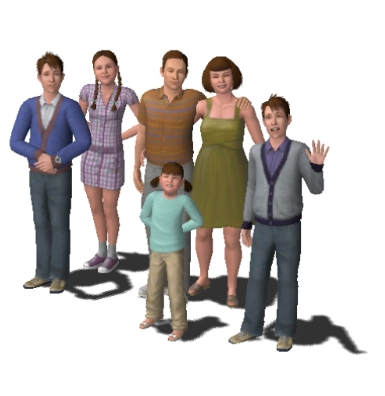According to Nick Bostrom, there is the potential for future generations of our species to create simulations, one of which could be the world we live in:
Many works of science fiction as well as some forecasts by serious technologists and futurologists predict that enormous amounts of computing power will be available in the future. Let us suppose for a moment that these predictions are correct. One thing that later generations might do with their super-powerful computers is run detailed simulations of their forebears or of people like their forebears. Because their computers would be so powerful, they could run a great many such simulations.
Later in his article, Are You Living in a Computer Simulation, Bostrom shares some reasons why post-humans might not run simulations – there might be ethical dilemmas, or they might get the same enjoyment or rewards more easily from other endeavors.
Missing from his paper are reasons for running a simulation – what would their motivation be? Having the technology doesn’t mean it is acted upon. I have the technology to paint my car purple, or to murder someone, but I am not motivated to do either…
Here are some reasons why an advanced civilization might run a simulation (like ours perhaps is), as well as why they might choose to end it.
1. ENTERTAINMENT
1.1 A game that has a challenge for a player or players.
a) The player is a human character in the game – it could be just a single player in our world, or there could be many. Regardless, the majority of humans would therefore be NPC (non-player characters), effectively different in some way – perhaps something that could be defined or noticed.
b) The player is non-human. For all we know, the game could be about being the cat that gets the nicest owners. Or about ants.
c) The player fiddles with the world, but is not in it – like the current computer game The Sims. The player could affect change in our world by giving characters inspiration, creating acts of weather, acts of God, or by introducing special characters who could affect the entire planet (Da Vinci, Shakespeare, Einstein…)
1.2 A simulation that is observed only, like how we watch goldfish in a bowl.
The total number of simulations ever run would be dependent on how many people wanted to play (ultimately limited by population size), and how long games took to play in their time. And of course how long the technologically advanced civilization lasted for.
2 RESEARCH
Future humans might be facing extinction due to a deadly virus that is spreading rapidly. Perhaps by running a billion simulations they can locate an environment in which a character can come up with an antidote? There are probably an unlimited number of scenarios in which survival of the real world depends on a mass of simulations to solve a problem.
3 TRAINING
Future humans may have lost the emotions and feelings that make us so peculiar and interesting. Perhaps simulations are training tools, to help them re-learn what it means to love, hate, laugh and cry?
4 HISTORY
I can’t see how this is possible. The motivation might be there to create a past era and observe it to learn more about history, but to perfectly create that era you would already need to know it completely. Even if you wished to create alternate histories (as many novels do these days), setting up the start point completely accurately would be too difficult. Just as the butterfly effect can change our world in unpredictable ways, it also means that getting a tiny thing wrong when setting up the simulation could create major errors.
I guess it is remotely possible that someone could travel back in time and scan the world, then return back to their time and upload it to a computer…
TIME
If the technology exists to run a simulation like ours, then it could easily exist to run it on fast forward – especially for the early days when life was first developing on Earth and wasn’t as complex. For all we know, an hour in a future human’s life is enough to run the simulation from the Big Bang through until today. And a player or researcher could step in at any time and slow it all down to suit them. They might also need to switch it off at bed time…
THE END
If we live in a game, then it could one in which a single player plays a single lifetime (or a lesser period) – after which the game probably ends. However we don’t know when they are starting to play. It could be any time between now and infinity. Or perhaps her role has already ended, but the simulation keeps running so she can see what happens to her descendants?
Or if it is a multi-player game, it could run continuously with new players joining/ leaving at any time. Success (and therefore the game ending) could involve the amassing of riches, or political control, or some kind of prize. Perhaps we are all looking for the key to immortality, or the Holy Grail, or a purple cow…
The simulation could revolve around the destiny of the human species – with the game ending either when we fail / become extinct, or when we succeed at something.
That success could be technological. Two possibilities that appeal to me are:
a) When we explore beyond our solar system – perhaps by reaching another star. Because the simulation won’t be able to generate an infinite universe, and building it ad hoc as we explore might have its own problems, the simulation might have to end when we go looking too far from planet Earth.
b) Our technology becomes advanced enough to create a simulation like the one we are in.
Regardless, the most likely scenario is that our simulation has a finite duration. But it is also unlikely to be ending in our lifetimes unless some critical achievement occurs.
Finally, there’s the idea of self-fulfillment. This could be a game where the task is to prove we are in a simulation. And by looking into this topic, I might bring about our demise if I stumble across real proof. But hey, it’s only a game, right?


